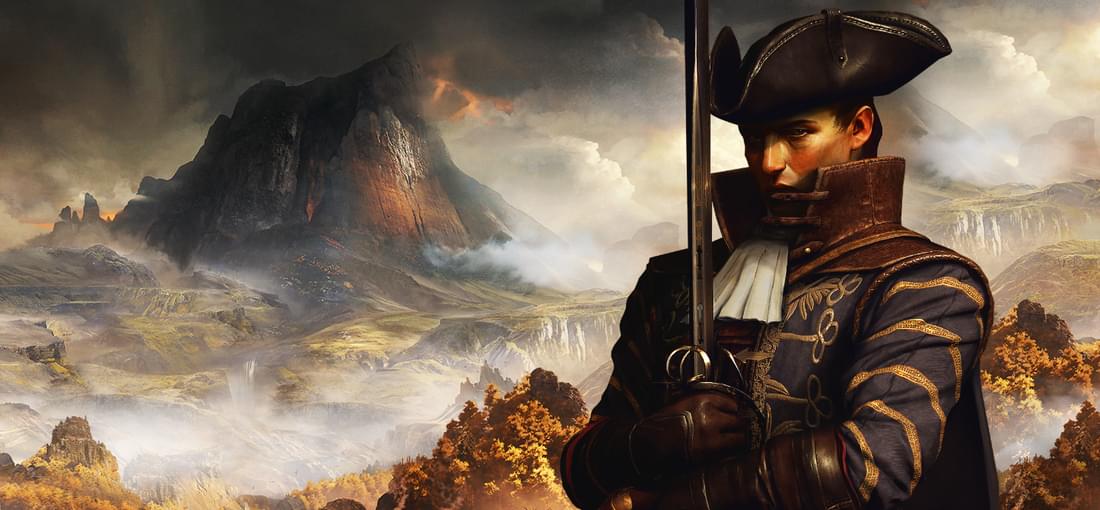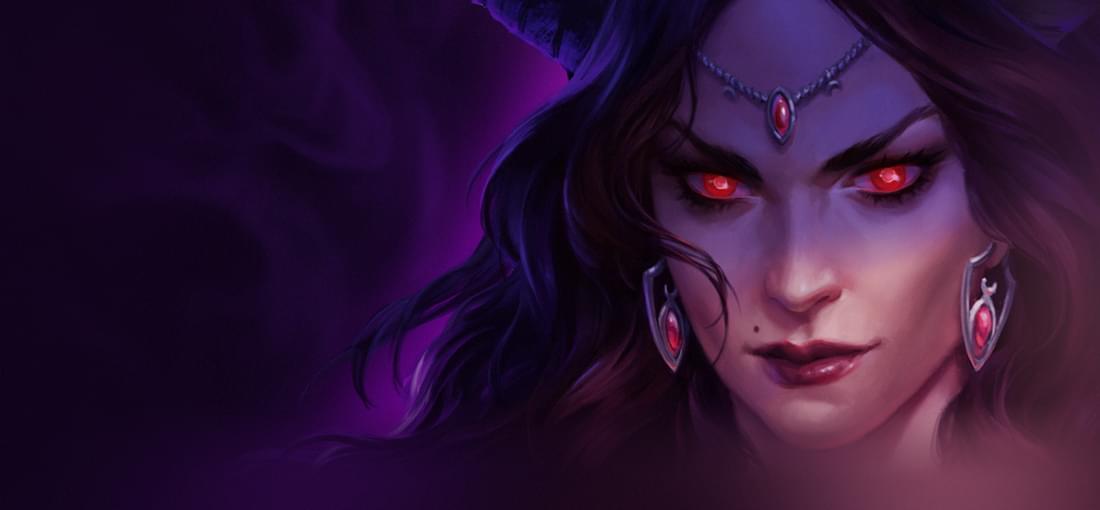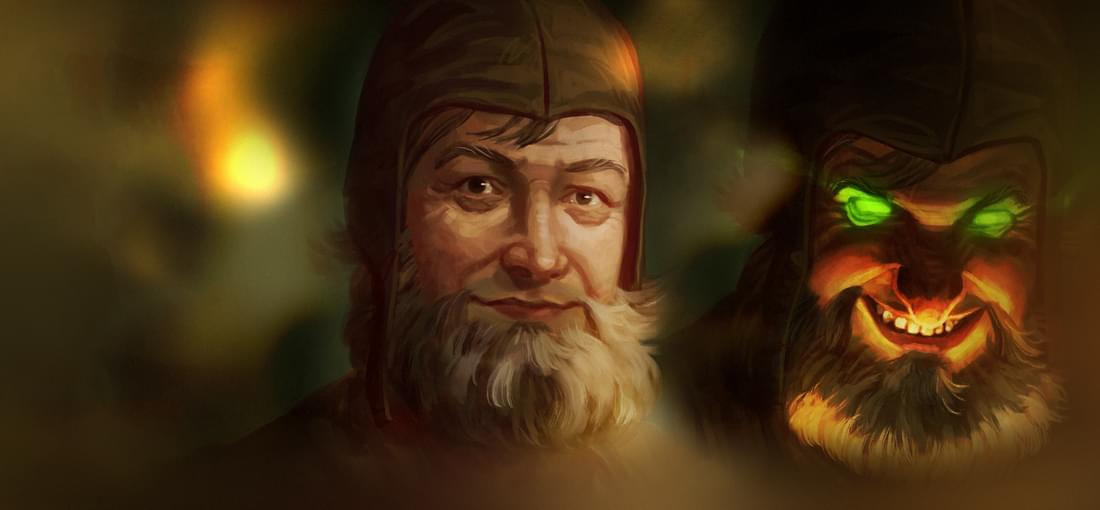


Greedfall gets kudos from me for being ambitious and, mostly, doing what it sets out to do. On the surface, it's an action-adventure RPG in the vein of Dragon Age, but set in a pseudo-Renaissance era where black powder flintlocks and muskets are commonplace alongside nautical navigation instruments and magic. And rather than being placed between feuding kingdoms and bloodlines, de Sardet (the main character) is a diplomat arguing against governors and tribal leaders on an island in the midst of colonization. Out of the starting gate, the backdrop sets this game apart. The scenery is gorgeous and saturated with colours besides brown and grey, the cities exhibit distinct historical architectures from each other, and the nature of your work as a diplomat necessitates either cooperation and investigation, or crushing those who oppose you and using your title to get away with it. And while the island natives are a major power in the story, they aren't portrayed as helpless or ignorant. They're warlike and dangerous and play a serious role in the history of the island. The gameplay is what you would expect of a AA title. This didn't have a huge budget and it shows in the simplistic navigation and combat, but because of that they had to do a lot more with what they had, and considering that, Spiders have built a lot on the standard formula. Social stealth mechanics based on one's outfit, a language for the natives that feels much more fleshed out than the usual couple of words in other RPGs, politics and intrigue based on each faction's respective history, and even small quality of life additions all make this a stand-out title. Don't compare this to the AAA Bioware games with bloated budgets and persistent bugs and crashes long after release. Greedfall does the best it can with what it has, and it pulls that off with aplomb and class. The system might not be new, but the story they tell with it certainly is. Set your expectations and try it; you won't be disappointed.

The mark of a great sequel is that it makes the original unplayable. Wrath of the Righteous does this for me in every respect compared to Kingmaker. First off, Wrath is a separate campaign to Kingmaker so it isn't technically a sequel, but it has so many of the same elements (sprawling narrative, building mechanics, choices and consequences) that the comparison can't help but be made. The major difference between the two is epicness. Kingmaker was all about building a kingdom and surviving intrigue. Wrath pulls from the PnP campaign module and breaks the standard game rules with glee. Rather than being an adventurer, you're a fledgling demigod that can become an unholy lich, an angel, a time-traveling aeon, or anything else. This plays true to the original campaign in focusing on Mythic energy and laughing at standard limitations. Limited Rage? Normal Spells? Dying? Forget those, we're going to steer into the insanity and laugh the whole way there. There are some familiar beats here in being able to build areas up, but they are fortresses instead of settlements, and babysitting them and managing the Fifth Crusade is nowhere near as laborious as it was in Kingmaker. Big plus there. The Crusade itself, managing the armies and generals, will be an acquired taste to some. I'm not a fan of how central Owlcat made it, making it an all-or-nothing shindig that you either grind through and get good at, or switch off and feel like you're missing out on part of the experience, but that was probably the point. This is a solid 4 stars, however, because while I admire the ambition of the devs and the scale of their project, that also means bugs and instability. Some areas are solid as bedrock, but others had me save-scumming between disarming traps between the six mandatory CtDs every time I went to the same place. Definitely an epic title, worth the entrance fee or, if bugs bother you, waiting until it's in a polished state. But don't ignore this one - it's pretty epic.

Take the classic formula of Baldur's Gate and give the engine an update and that's what you get with Black Geyser, except for all the ways that Black Geyser goes in its own direction and does what it wants. NPCs that reflect the world they are in? Check, and to change things up, you only have a party of 5 this time instead of the stabdard 6. From an elf celebrity sorceress to a guy cursed to revive every time he dies, no one feels standard or typecast here, and you have the option to bring the people you aren't using along for the ride to use them later. Handy stuff. Overworld map? Check, right down to the city districts each being their own area. This might seem like an anachronism, but it was a pleasure to see a kingdom's capitol teeming with citizens and soldiers and sentries active in a time of war. Houses were there for the sake of being explored, there were different inns and shops because the place would warrant them, and everything contributed to the sense of this place being the heart of government rather than a castle being run by three maids and a dog. This might be an acquired taste, but I loved it. For the new stuff, there's a group feat system that changes based on how often you change your crew or how often you use the same people. It's a small addition that gets a lot of mileage, and I can't wait to see what they do with it. Where Black Geyser falls a bit short is in everything that is under develpoment. Loading times, class depth, quest completion, bugs, these are all things that the team are ironing out by the week. Despite the team's reticence during development, their update schedule has been excellent. For what it is, Black Geyser is well worth the purchase price. I can't wait to see the finished product and its new mechanics (the Greed system, especially), and I'm looking forward to getting as much mileage as possible out of this new world and story. If you're into Baldur's Gate but wished it was modernized, don't sleep on this title.